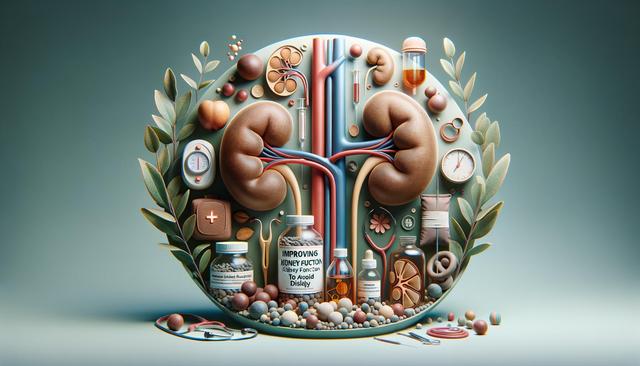Understanding Kidney Function and Its Importance
The kidneys are essential organs responsible for filtering waste and excess fluids from the blood, balancing electrolytes, and regulating blood pressure. When kidney function declines, waste builds up in the body, leading to serious health issues. Chronic kidney disease (CKD) progresses gradually, and without proper management, it can lead to end-stage kidney failure, often requiring dialysis. Understanding how these organs work and what affects their function is the first step toward protection. Factors like diabetes, high blood pressure, and genetic predisposition can compromise kidney health. Age, certain medications, and lifestyle choices such as diet and hydration also play a role in kidney performance. Monitoring kidney function through regular checkups, especially for those with risk factors, helps detect early signs of damage. Early intervention is key in slowing or halting disease progression.
Nutrition and Hydration for Kidney Support
One of the most effective ways to support kidney health is through proper nutrition and hydration. A kidney-friendly diet focuses on reducing the intake of substances that the kidneys struggle to filter. Sodium, for example, can raise blood pressure and worsen kidney damage. Protein, while essential for health, should be consumed in moderation in individuals with reduced kidney function.
Key dietary tips include:
- Eating more fruits and vegetables rich in antioxidants
- Limiting processed foods high in sodium and phosphorus
- Choosing whole grains and lean protein sources
- Drinking enough water to stay hydrated unless otherwise directed by a healthcare provider
It’s also helpful to work with a dietitian experienced in kidney care to create a personalized eating plan. Staying well-hydrated helps the kidneys flush toxins efficiently, but in advanced stages of CKD, fluid intake may need adjustment. Monitoring urine color and frequency can also give clues about hydration status.
Managing Underlying Health Conditions
Chronic illnesses such as high blood pressure and diabetes are leading contributors to kidney damage. Managing these conditions is vital in preserving kidney function. Blood pressure should be kept within target ranges, typically below 130/80 mm Hg for individuals with kidney concerns. Blood sugar levels should also be closely monitored and controlled to prevent additional strain on the kidneys.
Effective strategies include:
- Regular checkups with a healthcare provider
- Taking prescribed medications consistently
- Monitoring blood sugar and blood pressure at home
- Reducing stress through mindfulness or light exercise
Addressing these conditions early and consistently can slow the decline of kidney performance. In addition, avoiding over-the-counter medications such as NSAIDs unless approved by a doctor helps protect the kidneys from unnecessary harm.
Adopting a Kidney-Friendly Lifestyle
Beyond diet and disease management, lifestyle habits significantly affect kidney health. Regular physical activity improves circulation and helps manage weight, blood pressure, and blood sugar—all crucial factors in kidney wellness. Gentle exercise like walking, cycling, or swimming can be beneficial without putting strain on the body.
Other lifestyle changes to consider include:
- Quitting smoking, which can accelerate kidney damage
- Limiting alcohol intake
- Maintaining a healthy weight
- Getting enough sleep to support overall bodily function
It’s also important to avoid exposure to environmental toxins, including certain household chemicals and industrial pollutants, which may harm kidney tissue. Making these adjustments gradually and sustainably can lead to long-term benefits.
Monitoring and Early Intervention
Regular screening and monitoring are essential components of kidney care, especially for those at higher risk. Basic tests such as blood creatinine levels, estimated glomerular filtration rate (eGFR), and urine albumin levels help assess how well the kidneys are functioning. These indicators can detect early signs of damage even before symptoms appear.
Preventive strategies include:
- Annual kidney function tests for individuals with diabetes, hypertension, or family history of kidney disease
- Early consultation with a nephrologist if abnormalities are detected
- Monitoring medication side effects that may impact kidney health
Early detection enables timely interventions that can delay or prevent the need for dialysis. Keeping open communication with your healthcare team ensures that any changes in symptoms or lab results are addressed promptly.


